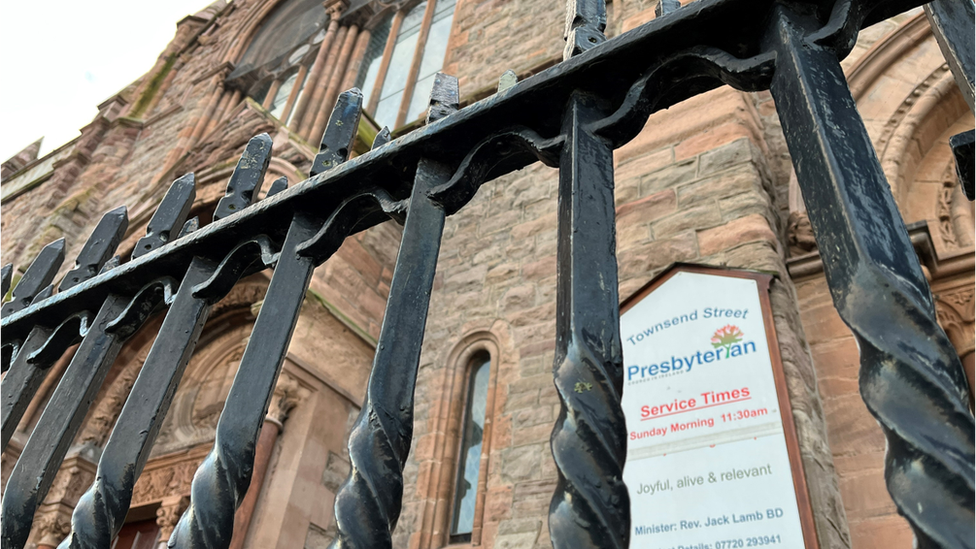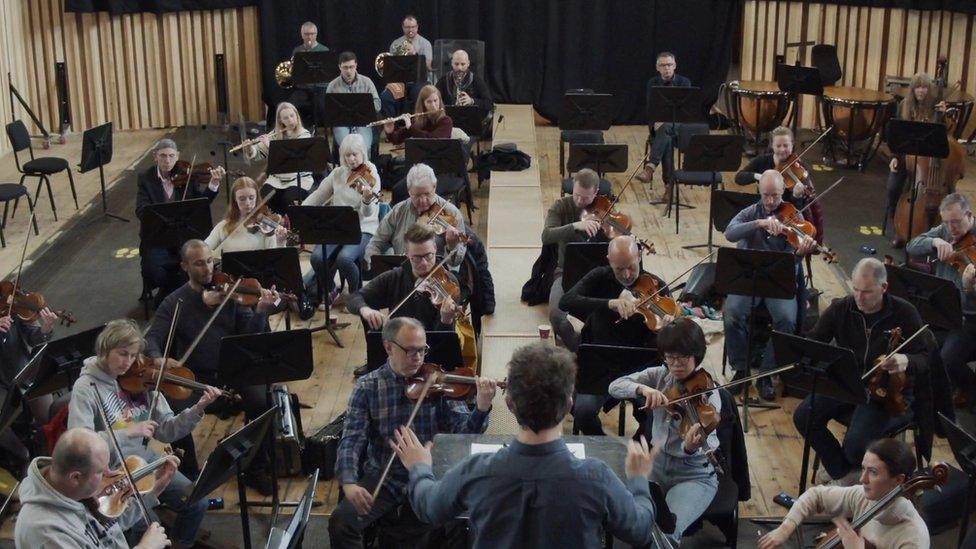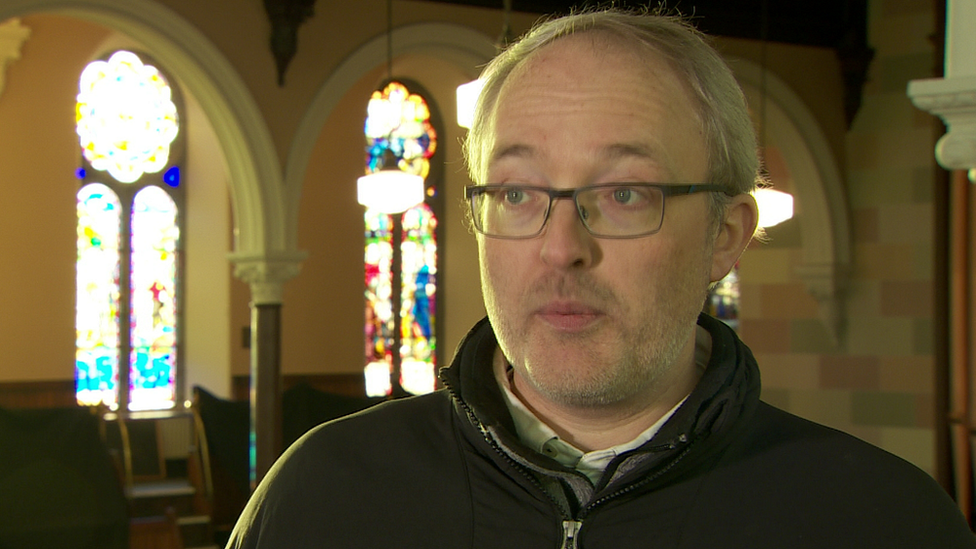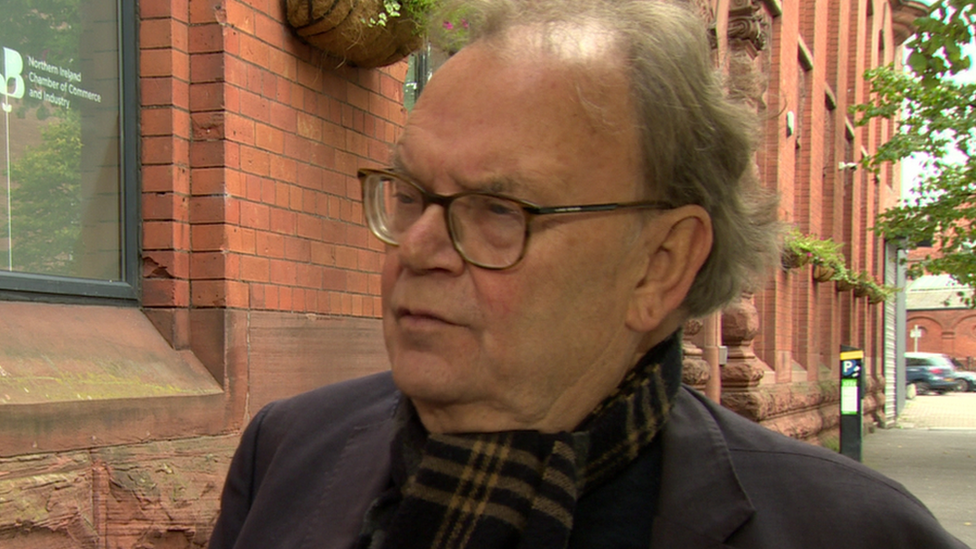Ulster Orchestra brings new life to old church venue
- Published

The orchestra is leasing Townsend Street Presbyterian Church
The Ulster Orchestra has started using one of Belfast's oldest Presbyterian churches as its main rehearsal venue.
The main building and hall of Townsend Street Presbyterian Church near the Shankill Road have been leased.
The last religious service took place in the building in September. Since then, minor adaptations have been made to accommodate the symphony orchestra.
It is estimated that more than 30 Presbyterian churches have closed in Belfast in the past 60 years.

Sacred music: The orchestra rehearses in the old church
The reasons include population shifts, secularisation and the violence in the city during the Troubles.
Faced with dwindling numbers, the Townsend Street church was left with little option but to close.
Members of the congregation have gone to neighbouring churches but they wanted to ensure the building was put to good use.
A long-standing member of the church, Peter Darragh, welcomed the arrival of the Ulster Orchestra.

Peter Darragh said parishioners were relieved that the church would be preserved
"The church is of cathedral-esque proportions. It is 15-16m tall. It is the same height as a concert hall, so despite the need for some acoustic interventions to make sure that sound travels in the right way at the right time, it's pretty much perfect for this kind of purpose," he said.
"Also locationally, it's really key to the Ulster Orchestra to see themselves as being part of the inner-city community.
"The fact that the building is going to be preserved… that's something that really has been a great sense of reassurance and relief for parishioners who have been terrified about the building falling down."
Research by the Belfast historian, Tom Hartley, suggests that at one stage there were more than 60 Presbyterian churches in the city.
"I was researching the history of Presbyterianism in Belfast for my book on Balmoral cemetery," he said.
"What I found out was that from 1964 onwards, you really get an acceleration of the decline of Presbyterianism and the closure of its churches.
"What I found was that 32 Presbyterian churches have closed and the bulk of them have been in north and west Belfast."

Tom Hartley said Presbyterians shaped the history of Belfast and all its residents
In some cases, church-goers moved out of the city.
"In north Belfast. what you have is really a movement up the Antrim Road to Glengormley and that area," he said.
'There's a lot of change'
Mr Hartley, who is a former Sinn Féin Lord Mayor of the city, explained his interest in Belfast Presbyterianism.
"It's our history. It's my history," he said. "Presbyterians, for better or ill, impacted on this city. They shaped this city. And in doing so they shaped all of us."
The most recent census, in 2021, showed an ongoing decline of religion in Northern Ireland.
In total, 17% of the population stated they had had no religion, compared to 10% a decade previously.
Trevor Long, clerk of the North Belfast Presbytery, believes the reduction of the number of churches in Belfast needs to be seen in the context of wider issues, including new housing schemes and population shifts.
"There's a lot of change. The churches (in Belfast) were all built because of a need and sometimes that need has changed, it's moved," he said.
"Society has moved. In our (North Belfast) Presbytery… we have closed lots of churches but we've planted two churches as well.
"So it's not all about decline. There are changes, positive changes."
The pews have been removed from the Townsend Street church, and the building now hosts regular rehearsals by the orchestra.
There may be more playing than praying, but the preservation of the building, the organ and stained glass windows means its religious heritage is not forgotten.